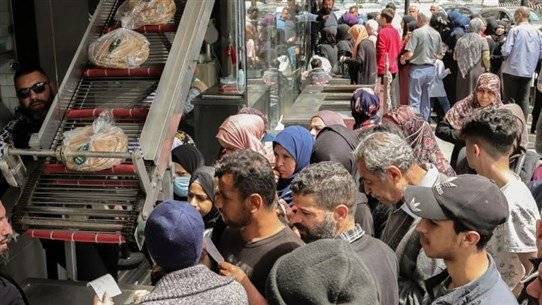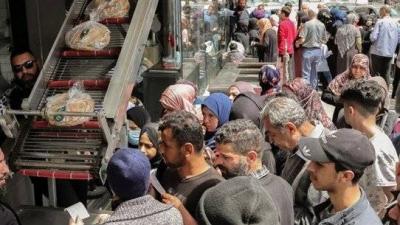The bread crisis is worsening in the absence of sustainable solutions. The Ministry of Economy has taken limited action in the past two days despite the revelations that are tantamount to a report, especially during the press conference held by Member of the Democratic Gathering Bloc, MP Wael Abu Faour, who exposed the smuggling, monopolization, and theft affecting the quantities of flour imported and subsidized by the state.
Tony Saif, head of the Bread Industry Syndicate, indicated that "the Ministry of Economy has made some efforts to combat smuggling and monopolization, but this is insufficient, and the confrontation requires stringent monitoring of mills, bakeries, and traders, and complete control over smuggling to Syria." In a conversation with the electronic newspaper "Al-Anbaa," Saif disclosed a partial solution to the problem, noting that "the wheat of Beqaa farmers is sold to Syrian traders at a price of $420, while the state imports wheat from abroad at $480. It is necessary to purchase quantities from Lebanese farmers at prices lower than the foreign price, which would allow for cost savings, but this requires procedures from the Ministry of Economy, as wheat imports in Lebanon are subsidized by the Central Bank, and the support goes to imports, not local purchases. Thus, support for buying local wheat is required so that traders can purchase it."
Saif warned of further worsening of the crisis in the coming days, as the quantities available are sufficient for only two weeks, and the incoming quantities are delayed and insufficient for the Lebanese market. In this context, informed sources indicated that "the Ministry of Economy is waiting for support from the World Bank in this regard, but according to information, the bank prefers to support the private sector rather than the state, meaning mills and bakeries, but this requires procedures and mechanisms."




